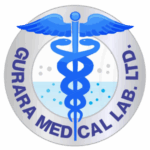Ever felt that fever creeping in and thought, “It’s probably just malaria”? You’re not alone.
In Nigeria, it’s almost second nature to self-diagnose and head straight for the nearest pharmacy. But here’s the dangerous truth: many infectious diseases share the same symptoms. And mistaking one illness for another can delay the right treatment—and in some cases, cost lives.
That’s why it’s time to stop guessing and start getting tested.
Let’s break down the most common infectious diseases in Nigeria, what their symptoms look like, and when it’s absolutely necessary to visit a medical lab. Because the sooner you know what’s really going on, the faster you can get better, and avoid putting others at risk too.
1. Malaria
This one barely needs an introduction. Malaria remains the leading cause of illness and death in Nigeria, especially among children under five.
Symptoms:
-
Fever
-
Chills and sweating
-
Headache
-
Muscle aches
-
Nausea or vomiting
-
Fatigue
If you live in a malaria-prone area (which, let’s be honest, is most of Nigeria), don’t assume. Use a rapid diagnostic test (RDT). It’s quick, affordable, and far more effective than blindly taking antimalarials.
2. Typhoid Fever
Typhoid is common in areas with poor water sanitation and food hygiene—which is unfortunately a daily reality in many parts of Nigeria.
Symptoms:
-
High, lingering fever
-
Abdominal pain or bloating
-
Loss of appetite
-
Weakness and fatigue
-
Diarrhea or constipation
Note: A Widal test alone is not always accurate. If you suspect typhoid, ask for a blood culture test or stool analysis to confirm it properly.
3. Hepatitis B and C
Here’s the scary part: hepatitis can live quietly in your body for years without showing symptoms—until serious liver damage kicks in.
Symptoms (when they appear):
-
Yellowing of the eyes or skin (jaundice)
-
Dark urine
-
Abdominal pain or swelling
-
Chronic fatigue
-
Nausea
Why test? Over 20 million Nigerians are estimated to be living with Hepatitis B or C. A simple blood test can save your liver—and your life.
4. Tuberculosis (TB)
TB is not just an “old disease”—it’s still very much active in Nigeria, especially among people with weakened immune systems (like those with HIV).
Symptoms:
-
Persistent cough (lasting more than 2 weeks)
-
Chest pain
-
Coughing up blood or mucus
-
Night sweats
-
Unexplained weight loss
TB is highly contagious and needs early testing with sputum smear microscopy or GeneXpert tests. If you’re coughing for weeks, don’t wait.
5. Lassa Fever
Often confused with malaria or typhoid, Lassa fever is a viral hemorrhagic illness spread by rats. It’s more common during the dry season in certain states (like Edo, Ondo, and Ebonyi).
Symptoms:
-
Fever
-
Sore throat
-
Chest pain
-
Vomiting
-
Bleeding (in severe cases)
Because it mimics other diseases, lab testing is crucial. If you’ve had contact with someone sick or you’re in a high-risk zone, get tested immediately.
6. HIV/AIDS
The virus that causes AIDS doesn’t always show symptoms at first. That’s what makes routine testing so important—especially if you’re sexually active or have had multiple partners.
Symptoms (in early stages):
-
Fever
-
Rash
-
Sore throat
-
Swollen lymph nodes
-
Fatigue
Many people don’t know they’re positive until it’s progressed. Free and confidential HIV testing is available across Nigeria—don’t wait until symptoms show up.
7. COVID-19
Yes, it’s still here. While it’s no longer in the headlines as much, COVID-19 is still circulating—especially during flu season or large public events.
Symptoms:
-
Fever or chills
-
Cough
-
Loss of taste or smell
-
Shortness of breath
-
Sore throat
-
Body aches
PCR or rapid antigen tests can help confirm if what you’re feeling is just the flu—or something more serious.
8. Dengue Fever
Often underdiagnosed in Nigeria, dengue fever is a mosquito-borne illness like malaria—but it can cause bleeding and severe complications if not caught early.
Symptoms:
-
High fever
-
Severe headache
-
Pain behind the eyes
-
Joint and muscle pain
-
Skin rash
There’s no specific treatment, so early detection and supportive care are key. If malaria tests come back negative, ask your doctor about dengue testing.
The Bottom Line?
Your body isn’t a guessing game. Self-medicating might offer temporary relief, but it could also delay the right treatment, and make things worse.
When should you get tested?
-
If symptoms last more than 2–3 days
-
If you’ve recently returned from travel
-
If someone close to you is sick
-
If your usual “go-to meds” aren’t working
-
Or if you just feel… off
Testing is faster, more affordable, and more available than ever. And it’s the only way to be sure.
Final Word
Don’t treat your health like a lottery. If you’re not feeling well, don’t wait, get tested.
You’ll protect yourself, your family, and your community. Because the truth is, early detection doesn’t just save lives—it saves your life.


